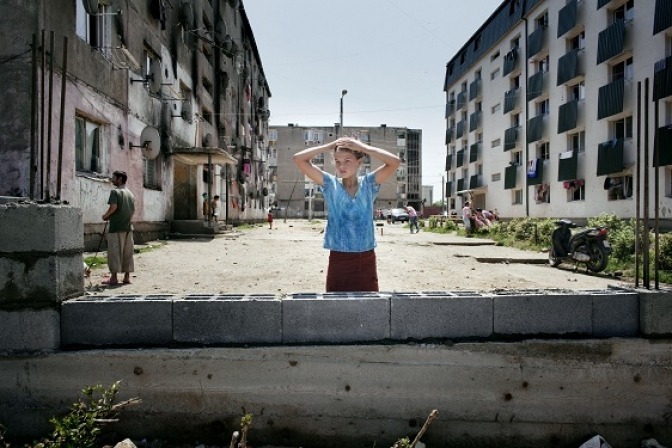The history of Roma people in Europe has been characterized by racism and discrimination and Roma exclusion remains an everyday reality of social life. This has contributed to a lack of trust in mainstream society and authorities amongst Roma. Furthermore, Roma rarely report when they are subjected to discrimination or other violations of their human rights.
All are born equal in dignity and rights, according to the UN’s Universal Declaration of Human Rights of 1948. The idea of equal human dignity and rights is central to ethics and jurisprudence on human rights. Human dignity is a universal value and applies equally to all people.
Despite having the legal tools in place, we are all acutely aware that the restrictions of rights continue against Roma in Europe. How do we change our society so that everyone can enjoy equal rights and opportunities?
Although some countries have a national policy to promote and support national minorities, Anti-Ziganism/Anti-Romanyism is becoming increasingly vivid in our everyday lives. Roma are excluded from the labor market. They are denied their basic rights when it comes to housing, education and healthcare, which should be on equal terms with other citizens.
The lack of knowledge about Roma people, their invisibility in society, and the denial of abuses against the Roma ethnic group are all contributing factors to their continued marginalization. Racism has acted with different expressions throughout history. Roma vulnerability is a persistent and accompanying theme throughout the countries of Europe.
Today we can see these EU citizens on our streets and cities across Europe. They come with their legal right to reside in the Schengen area for three months to seek a more tolerable life for themselves and for their children and with the dream of a better tomorrow. The issues are many, including restrictions and prejudice by employers preventing them from working as unskilled labor.
Few options, save making music or begging, are given. Next, we begin to problematize these people who need help and are only trying to reach a safer country. Instead, we focus our attention on our nice street scenes which no longer look beautiful. The public discourse is shaped in favor of those that are in possession of privileges, instead of considering those citizens that are most vulnerable in society. Our attention should be elsewhere.
These individuals and families have been forced to leave their own countries, usually due to diminishing chances of employment, segregated education and housing opportunities, and an incessant spiral of poverty. They want nothing more than being involved in society and treated like other people, to be able to contribute to society, to just be the human being we all have the right to be. Nothing more, nothing less.
It is difficult to understand how the Roma have been treated and how they are still treated in a supposedly equal and democratic Europe. The puzzling fact is not the Roma’s lingering lack of trust towards the majority of society, but of society’s attitudes towards Roma. There is no shame threshold for actions against the Roma in any country in Europe or the rest of the world. It is socially acceptable to think, say, and act towards Roma as you like without any repercussions.
This is not worthy of a democratic and free Europe.
All individuals in our communities must be involved in protecting the rights and opportunities for everyone. We cannot idly become bystanders when violations occur on a daily basis. The next time an individual’s basic human rights are being violated, chance is it might be your own rights. Imagine: what if the next victim was you?
If we are to see clear results of the work against prejudice and discrimination, we have to gather all positive forces in society to work in common against discrimination and racism. But the responsibility lies especially heavily on those in government.
The leaders of the EU member states must take their responsibility and put an end to the persecution, discrimination, racism and pogroms of Roma EU citizens once and for all. Concrete steps must be taken urgently to improve Roma living conditions, education, health care and job opportunities. There are targeted EU funds available for these measures. Many member states choose not to use these funds, thereby actively and blatantly showing contempt for basic human rights.
The Roma belong to Europe and should be treated like other citizens, regardless of origin. Until the day comes when every government is making their utmost efforts to create equal opportunities for Roma, the EU cannot claim to be a union where fundamental rights are protected. I call on all the leaders throughout Europe to address this now.
Bodil Ceballos, Swedish Green Party
Member of European Parliament
International Roma Day: What if it was you?
This is an opinion article by an external contributor. The views belong to the writer.

© Mugur Varzariu
